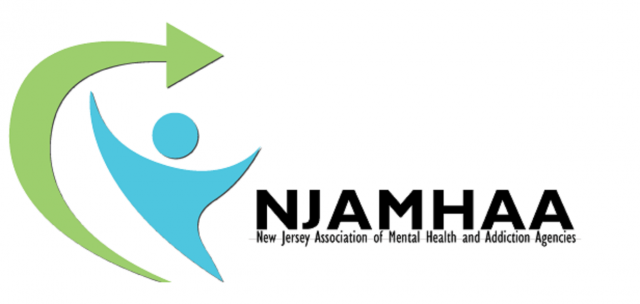February 11, 2025
Yesterday, Debra L. Wentz, PhD, NJAMHAA’s President and CEO, and Shauna Moses, Vice President of Public Affairs and Member Services, participated in a virtual press conference, New Jerseyans Cannot Wait any Longer for Life-Affirming Care; Greater Investment Is Needed in Community Services, with leaders of several other advocacy organizations: New Jersey Alliance for Children, Youth and Families (NJACYF), The Arc of New Jersey, Alliance for the Betterment of Citizens with Disabilities (ABCD), New Jersey Care Management Organizations (NJCMO) and New Jersey Association of Community Providers (NJACP).
“While each of us serves a different group of providers of care, we face many challenges in common: systems that have been underfunded for many years and are facing more uncertainty than ever, including threats to federal funding streams that New Jersey relies on to deliver care; skyrocketing costs to provide services with no mechanism in place to automatically adjust contracts to cover these costs; a tremendous increase in the demand for services; and a dwindling workforce in a sector where consistency in staff can make all of the difference in the success and happiness of individuals in care and their families,” stated Megann Anderson Fischer, JD, Executive Director, NJACYF.
The Arc, ABCD and NJACP primarily represent individuals with intellectual and developmental disabilities (IDD) and the organizations that serve them. Several NJAMHAA members also serve the IDD population, and Dr. Wentz noted that behavioral healthcare providers need training to most effectively serve individuals with IDD, as many of them also have mental illnesses and/or substance use disorders.
Thomas Baffuto, Executive Director, The Arc of New Jersey; Cathy Chin, Executive Director, ABCD; Suzanne Siverio Kreie, LCSW, Treasurer of NJCMO and Chief Executive Officer of Coordinated Family Care, which is a NJAMHAA member; and Valerie Sellers, CEO of NJACP, reinforced the value of services and the workforce who deliver them, as demonstrated by individuals’ successes that were made possible by clinical treatment and other supports. They also stressed the risk of losing progress that had been gained if funding is not increased and, as a result, individuals lose access to these services.
In addition to reinforcing the points made by everyone noted above, Dr. Wentz and Moses stated that increased funding is also needed because of higher administrative costs associated with the carve-in of more behavioral health services into Medicaid managed care. “Staff have had to take on additional layers of administration, including credentialing, prior authorization and claims,” Moses explained. “Community-based behavioral healthcare providers in New Jersey already operate on razor-thin margins. The additional demands imposed by the carve-in threaten this fragile balance,” she added. Click here to read the entire statement that Moses delivered during this press conference.
“Everybody is waiting in suspense with the unpredictability of what is to come from the federal level and how that can impact people with any kind of disability,” Dr. Wentz stated. “We are asking Governor Murphy and the Legislature to make people a priority. The populations we serve are very vulnerable,” she stressed.
To watch the recording of the press conference, click here and use the following passcode: !@Y5ubgd


